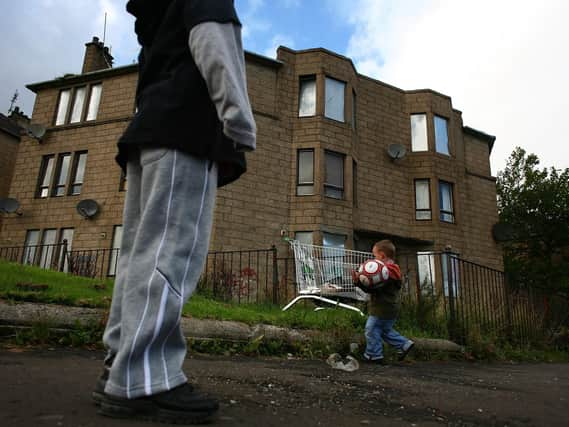Child poverty rise in parts of Leeds among worst in country


The End Child Poverty coalition said some working families had been pushed to breaking point by a steady four-year rise in child poverty, and has called on the Government to commit to an ambitious strategy to end child poverty in the aftermath of the coronavirus pandemic.
Although the overall rise in child poverty in the city is among the lowest in the region - by 1.8 per cent from 10.9 per cent in 2014/15 to 12.7 per cent in 2018/19, the stark inequalities across the city have been laid bare.
Advertisement
Hide AdAdvertisement
Hide AdTwo of the city's constituency areas, Leeds East and Leeds Central, are among the top 20 areas in the country that have seen the biggest rise in child poverty, at 9.2 per cent and 7.9 per cent respectively.
In Yorkshire as a whole, the child poverty rate in 2018/19 had risen to 23.4 per cent, an increase of 4.2 per cent from 2014/15, the coalition’s analysis of Government data showed. Across the country, the North East of England has seen the biggest increase in child poverty - 6.5 per cent.
Campaigners said they fear the added impact of coronavirus on household budgets could worsen the situation, and urged the Government to increase the amount of money in families’ pockets.
Chair of End Child Poverty, Anna Feuchtwang said some children had been “cut adrift” by the Government.
Advertisement
Hide AdAdvertisement
Hide AdShe said: “We may all be experiencing the storm of Coronavirus together, but we are not all in the same boat.
“Our country’s children are now at severe risk of being swept deeper into poverty as a result of the pandemic and lockdown. This is why we are asking the government to strengthen the social security system which is there to hold us steady during tough times, by immediately increasing household income for those least well-off.”
TUC regional secretary Bill Adams said: “Child poverty has been pushed up by cuts to support for families, and by falling real wages for nurses, teachers and our other amazing frontline workers. Now the coronavirus outbreak risks plunging many more children into poverty.
“We need the right economic plan for recovery. The government must get wages rising again and provide a proper safety net to keep all children out of poverty.”
Advertisement
Hide AdAdvertisement
Hide AdLabour MP for Leeds East, Richard Burgon said ordinary people were paying the price for the banking crisis, which led to record austerity measures.
He said: “East Leeds is exactly the kind of working class community hit hardest by a decade of cruel Conservative government cuts, heartless policies like the Bedroom Tax, unfair attacks on benefits and the expansion of low wage, insecure and ‘zero hour’ contract employment.
“We can't allow the government’s ‘settling of the bill’ in the aftermath of the Coronavirus crisis to mean further attacks on living standards in areas like East Leeds.”
Leeds City Council executive member for children and families, Coun Fiona Venner, said a national approach was needed to tackle child poverty.
Advertisement
Hide AdAdvertisement
Hide AdShe said: “Child poverty was a huge concern before the impact of the coronavirus lockdown, with 73 per cent of children living in poverty residing in a household where at least one family member was working. Child poverty has increased during the pandemic as families previously just about coping on low wages, zero hours' contracts and self-employment, have fallen over a financial cliff edge.
“Going forward, we are greatly concerned that the numerous challenges stand to be heightened as we look to reduce lockdown restrictions. What is clear is that the welfare of children must be at the heart of policy to mitigate the impact on child poverty. ”
A Government spokesman said: “This Government understands the challenges many are facing which is why we injected £6.5bn into the welfare system, including increasing Universal Credit and Working Tax Credit by up to £1,040 a year, as well as rolling out income protection schemes, mortgage holidays and additional support for renters.
“We currently spend a record £95 billion a year on our safety net welfare system and remain committed to supporting the most vulnerable in society throughout the current emergency and beyond.”
Comment Guidelines
National World encourages reader discussion on our stories. User feedback, insights and back-and-forth exchanges add a rich layer of context to reporting. Please review our Community Guidelines before commenting.